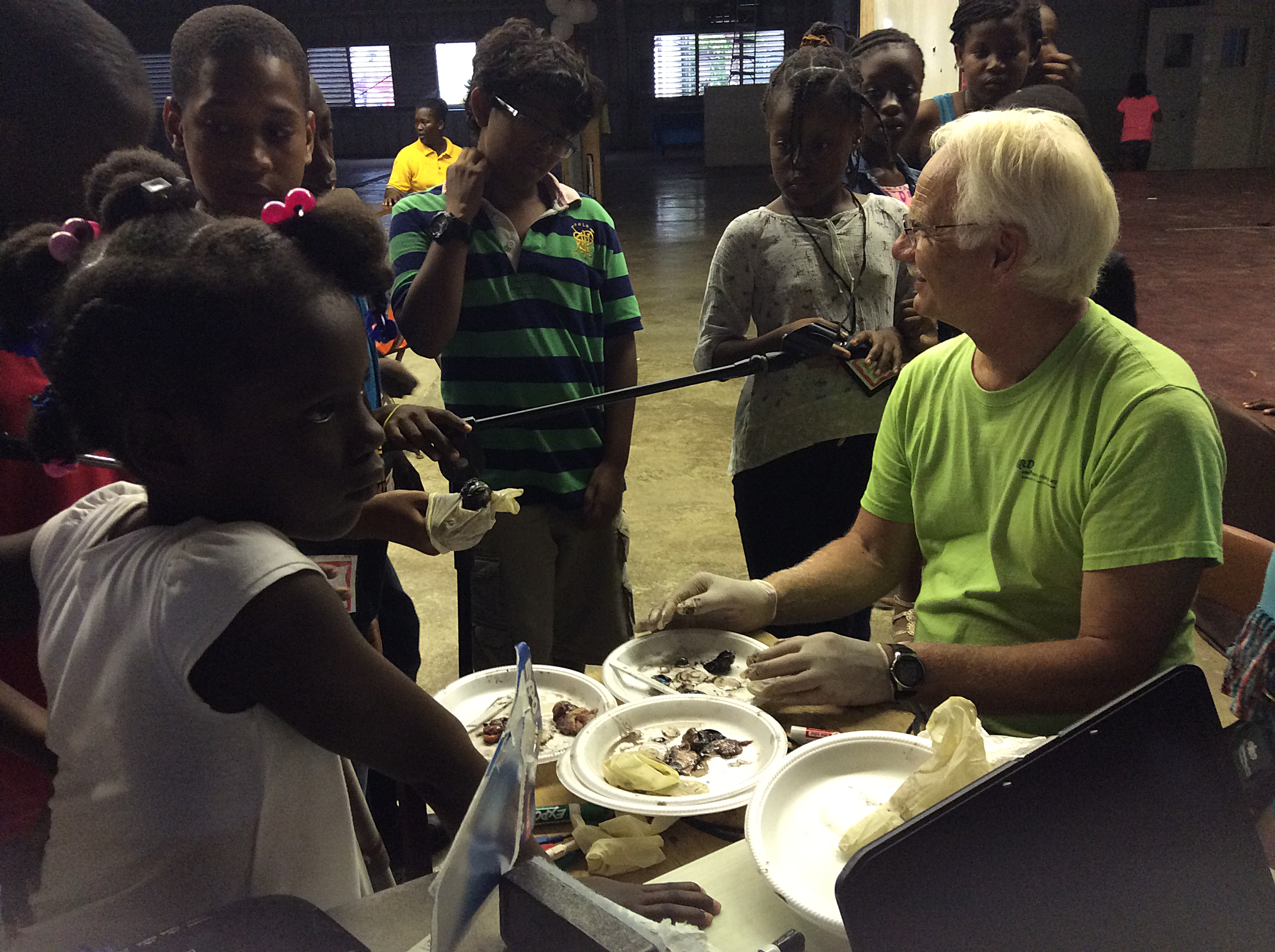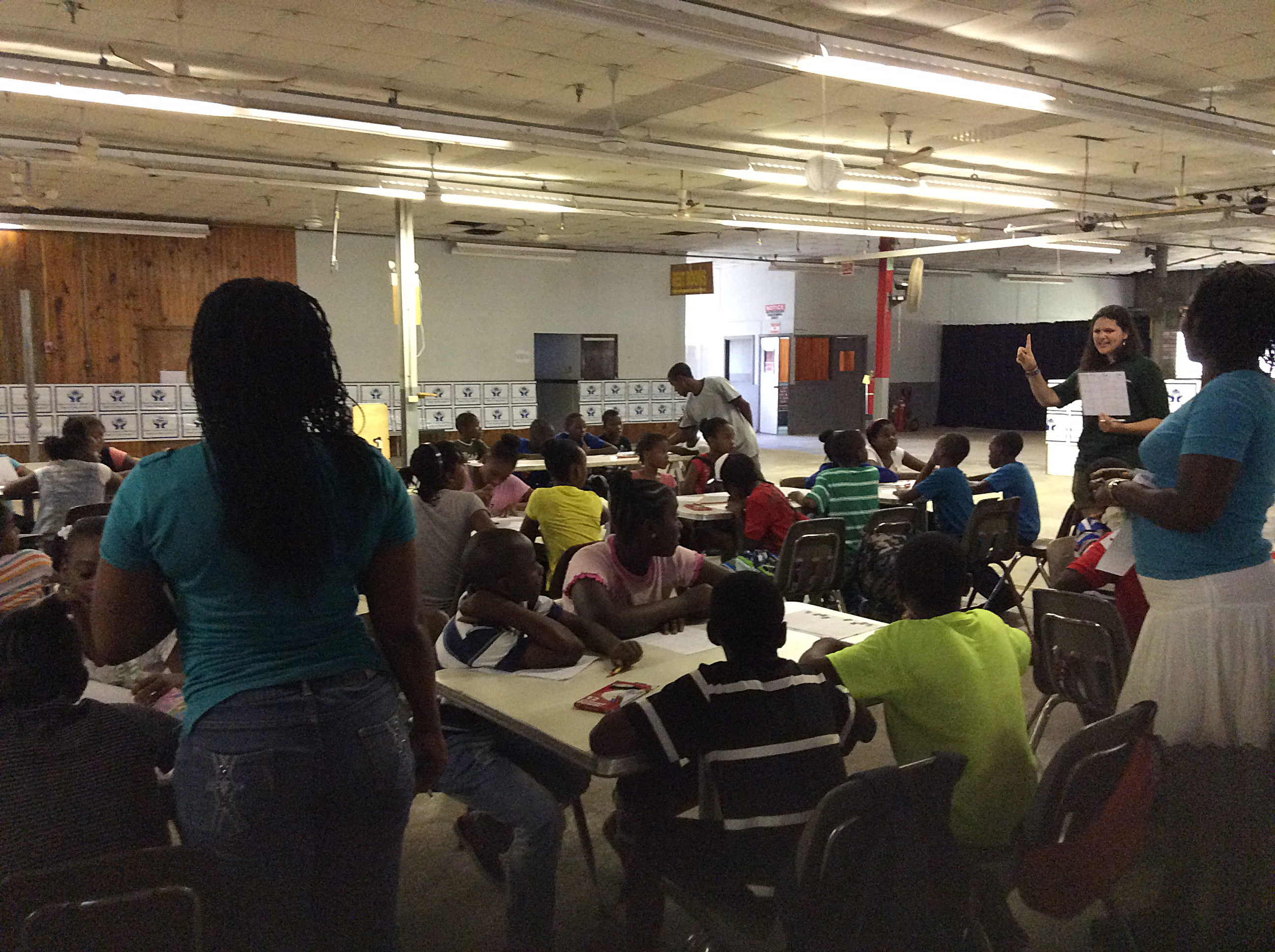Project Jamaica
“Partnering to Develop Promising Young Scientist Globally”

 The CORD International Outreach (CIO) program strives to bring exceptional quality of education that our U S students enjoy to the rest of the world, in particular third world countries. CORD International Outreach was first launched in the summer of 2015 in Lucea, Jamaica in the Hanover Parish just outside of Montego Bay. Students received a mix of pedagogy offered from CORD summer programs along with programs tailored to the needs of the community, students and teachers.
The CORD International Outreach (CIO) program strives to bring exceptional quality of education that our U S students enjoy to the rest of the world, in particular third world countries. CORD International Outreach was first launched in the summer of 2015 in Lucea, Jamaica in the Hanover Parish just outside of Montego Bay. Students received a mix of pedagogy offered from CORD summer programs along with programs tailored to the needs of the community, students and teachers.CORD’s Jamaica project themed “Partnering to Develop Promising Young Scientist Globally” is the brainchild of Shirley Sanders Ginwright, Program Director, initiator, and administrator of the project. The CIO initiative spanned three-weeks with the first week (August 3-7) focusing on local teacher training in inquiry based learning taught by CORD staff: Education Specialist and LabWorks Director Ms. Katie Busch; and, CORD’s School of Science and Math and BioTeach for Teachers Director, Danielle Yancey, Ph.D. Other CORD Staff included IT Specialist, Steven A Wyss. UAB and CORD Faculty attending the inaugural trip included: J. Michael Wyss, Ph.D., Director of CORD and Professor of Cell, Developmental and Integrative Biology, and Medicine; Harold P. Jones, PhD. Dean and Professor, School of Health Professions, UAB.
 While initially the goal of the Teacher Training week was to train Jamaican teachers in activities used in CORD summer Camps. Many of our activities modeled inquiry-based science experiments and exploration, as well as taking lecture material and making it much more hands-on and interactive. However, once there we learned that participating teachers were eager for new teaching
While initially the goal of the Teacher Training week was to train Jamaican teachers in activities used in CORD summer Camps. Many of our activities modeled inquiry-based science experiments and exploration, as well as taking lecture material and making it much more hands-on and interactive. However, once there we learned that participating teachers were eager for new teachingstrategies so we shifted to more of a professional development focus featuring: Inquiry-based learning, Claims Evidence Reasoning Instruction (a note-booking technique), sharing Cornell Notes, construction of foldscopes from PrakashLab at Stanford University, and an introduction to lateral thinking puzzles to name a few of the activities says Ms. Busch and Dr. Yancey. The techniques and teaching strategies showcased our summer camps and inspired teachers showing them how to do high-level science with very cost-effective materials.
Ages 10-11:
Week 2 – August 10-14, 2015 Camp 1) Diving into the GENE Pool –Students dive into the GENE pool and investigate the role that DNA plays in every living creature.
Week 3 – August 17-21, 2015 Camp 2) PhysFactor – Campers put their body and brain to the test to see if they could meet the challenge in which they become the scientist and the subject.
Week 3 – August 17-21, 2015 Camp 2) PhysFactor – Campers put their body and brain to the test to see if they could meet the challenge in which they become the scientist and the subject.
Ages 12-13:
Week 2 – August 10-14, 2015 Camp 3) Molecules and You – Campers embarked on a week-long adventure to explore the molecules that are involved in everyday life.
Week 3 – August 17-21, 2015 Camp 4) We’ve Got solutions! – Campers spent a week exploring the wonders and magic of chemistry.
Week 3 – August 17-21, 2015 Camp 4) We’ve Got solutions! – Campers spent a week exploring the wonders and magic of chemistry.
Initially we anticipated that we would have approximately 50 Campers total. End of second week of Camps, nearly 170 students participated in the CORD Project Jamaica Camps 2015. Camps were a phenomenal success! This is the first time that a U S University has nurtured and cultivated the students in Lucea thus exposing them to teaching strategies, and modern techniques in high-level science.
 CORD’s goal is to sustain the project and trust that the nearly 20 teachers will use the strategies and techniques learned in the summer by sharing them with students throughout the academic year. Our team of teachers became on-site Instructors with approximately 10 serving as facilitators and lead instructors in the second week of Camps.
CORD’s goal is to sustain the project and trust that the nearly 20 teachers will use the strategies and techniques learned in the summer by sharing them with students throughout the academic year. Our team of teachers became on-site Instructors with approximately 10 serving as facilitators and lead instructors in the second week of Camps. In addition to sharing CORD’s science training, teachers were also trained in classroom management and experiments that they can continue in their own classrooms. These teachers will be provided on-going support from CORD trainers in the US. The support includes a website setup for communication and lesson plans, assistance locating local suppliers for materials, assistance implementing lessons and experiments, and preparation as requested in future lessons plans and experiments.
